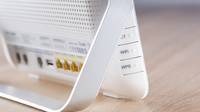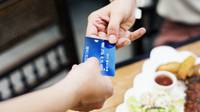
Most of us have probably experienced times when the only thing standing between ourselves and an important transaction was our failures to remember a password. Internet service provider (ISP) and email accounts, chatrooms and blogs, cybershops, Internet libraries and newsgroups, and computers, automated banking machines, point-of-sale card scanners and dozens of other electronic devices, all depend on alphanumerical passwords for additional security. The problem is that remembering which passwords belong to which accounts and devices can be extremely frustrating. There are several ways to remeber passwords, however, including mnemonic devices, personal references and word associations.
One method many people use to remember passwords is personal references. Whenever someone has the option of creating personalized passwords, it is often easier to select numbers or letters with personal significance. Four digit passwords, for instance, could be a former street address or the number in your locker key. Using current personal information for passwords is usually discouraged by security experts, but people rarely forget numbers from their past. If the passwords must be numerical, then you should mentally associate them with your personal history. For safety factor, however, use combinations that are not too obvious.
The same holds true for alphabetic passwords. The words that you can use as passwords should hold some personal meaning, such as the name of a beloved pet or favorite relative. It could also be a nickname from your childhood or a character from a favorite book. The point is to form an association between the alphabetic passwords and personal information only you would know readily. Thieves may do some research into their victim's persona; lives, so it may not be a good idea to use the name of your current spouse or child as passwords.
Another way to remember passwords is to create a mnemonic device. If you chose to use alphanumeric passwords with random numbers and letters, you need to create an easily remembered phrase,even if it makes no sense aloud, to associate with them. If one of your passwords is RJi17nD, for example, you may think "Rachel Joy is 17 next December" or something equally memorable. Passwords containing random numbers could be remembered as word puzzles. A series of numbers such as 1435449 could be remembered as "I love you today more than yesterday."
Sometimes passwords are recognizable by their patterns. Numerical codes such as 1357 or 2468 are easier to remember than random ones such as 7559. Muscle memory can also help people remember their most commonly used passwords. Logging into a personal computer, for example, requires the same password every time. Eventually, your fingers will recognize that pattern of keystrokes even if you have difficulty recalling it mentally. Picture a keyboard or a numerical pad in your mind and allow your fingers to recreate these familiar patterns.


















